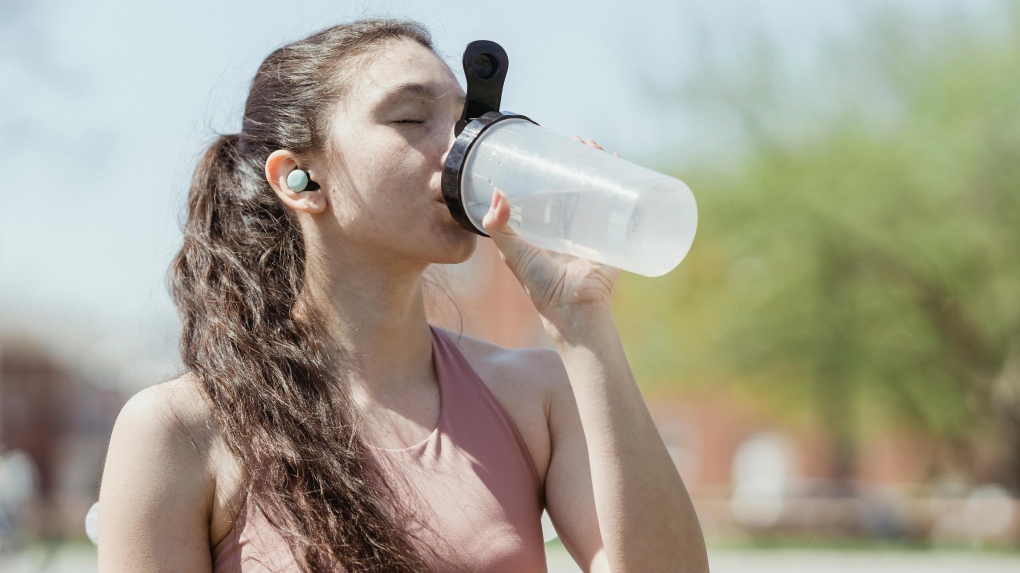
Is your 'emotional support water bottle' causing overhydration?
CTV
Always having a sip of water by your side can be great for remembering to stay hydrated, but sometimes forming an attachment to a water bottle can lead to a fixation on hydration that could have serious health consequences if taken too far, according to medical experts.
Whether it be the latest prized Stanley cup or that 10-year-old plastic spout bottle you don’t go anywhere without, “emotional support water bottles” seem to be stuck to our sides and not going anywhere.
The term for the self-care accessory has been circling social media for several years, with the hashtag #emotionalsupportwaterbottle at over 18,000 posts on TikTok and thousands on Instagram. The catchphrase seems to embody how most people feel about their trusty sidekick that doesn’t leave their sight.
Always having a sip of water by your side can be great for remembering to stay hydrated, but sometimes forming an attachment to a water bottle can lead to a fixation on hydration that could have serious health consequences if taken too far, according to medical experts.
“It’s not easy to overwhelm your kidneys,” said Dr. Kambiz Kalantari, a nephrologist at the Mayo Clinic in Rochester, Minnesota. “But there are situations in which people are obsessed with drinking water. … We’re talking about 10, 15 litres that overwhelm their kidneys.”
Here are tips on gauging how much water you need to put in your drinking cup and what could happen when a hydration habit goes overboard.
The amount of water a person should drink in a day is an age-old question that doesn’t have a one-size-fits-all answer — it depends on factors such as a person’s health, size, location and types of activities in a day.
The National Academy of Medicine recommends 3.7 litres (125 ounces) of water per day for men and 2.7 litres (91 ounces) for women, which account for water intake from all food and beverages throughout the day, while many stick to the common advice of drinking 8 cups of water a day (1.9 litres or 64 ounces), which is easy to remember and typically keeps a person at a good level of hydration, according to the Mayo Clinic. Some people may need to drink less, while others may need more, the clinic adds.











